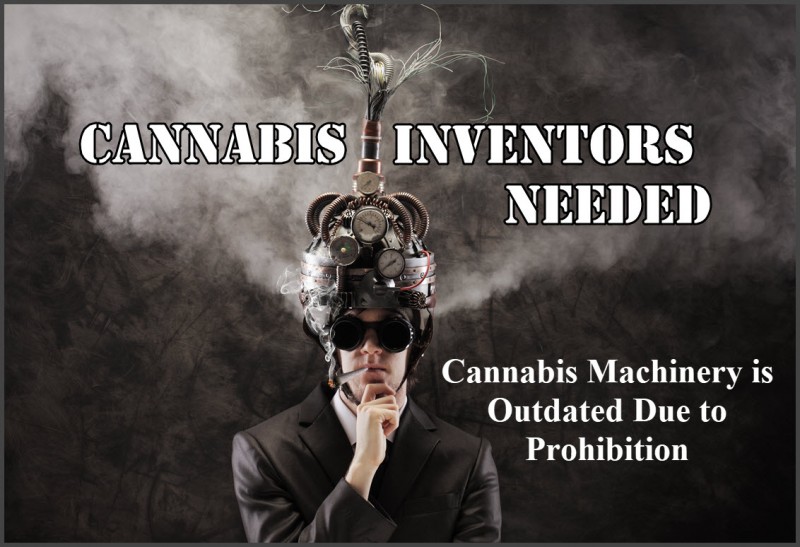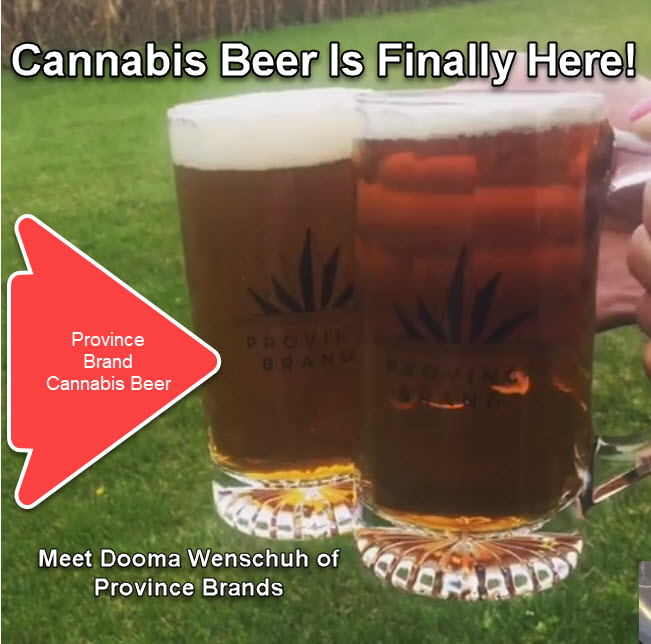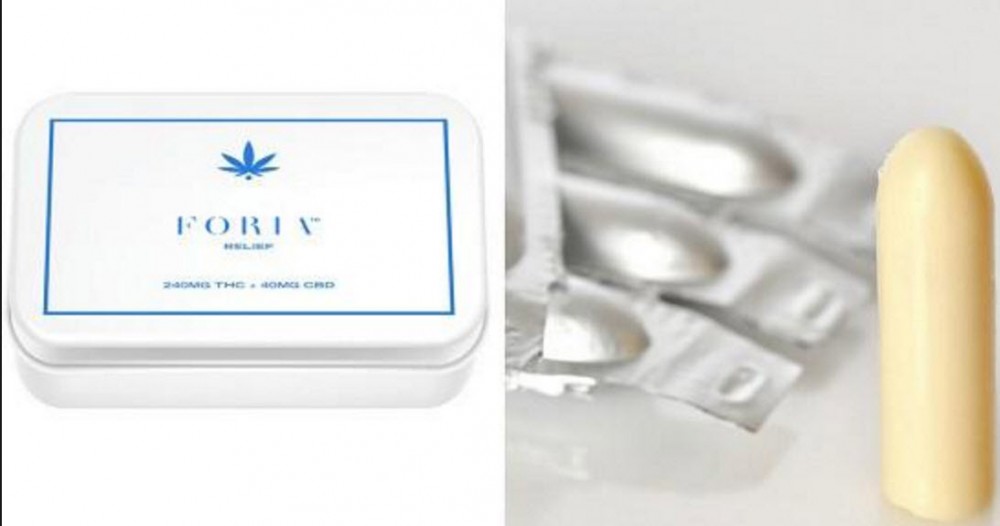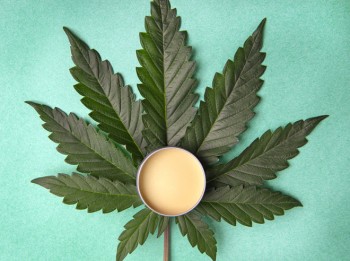INVENTORS NEEDED: Cannabis Machinery outdated due to Prohibition
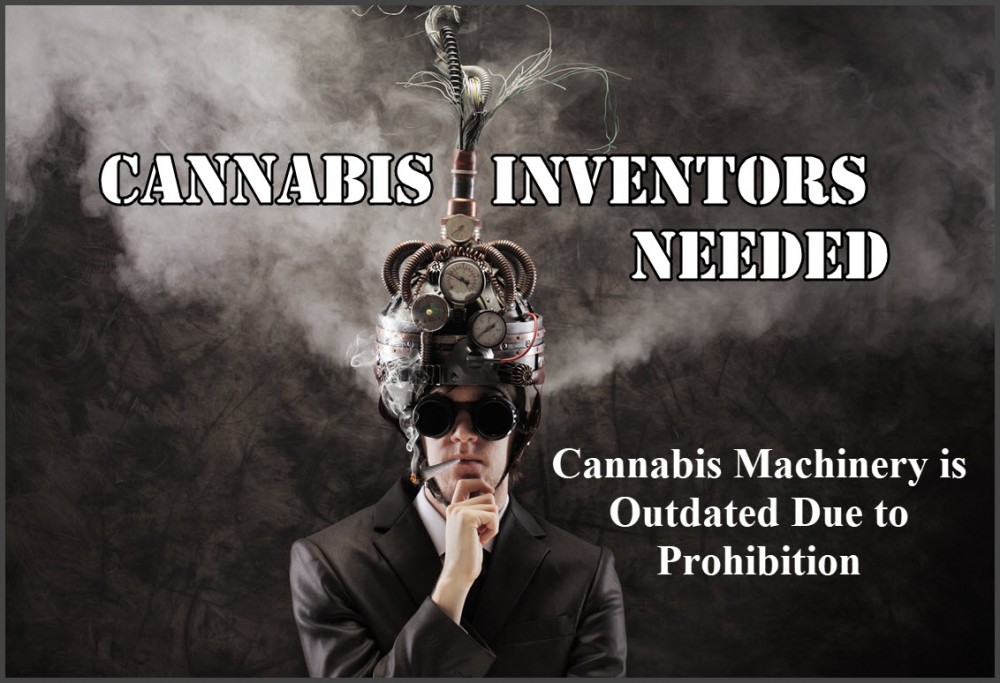
Inconvenience is the greatest inhibitor in the quest for a sustainable society. Ethical consumption models are becoming ever more popular among people with a significant emphasis on sustainability. But what does sustainability actually mean?
Some, choose to avoid eating meat and its derivatives for a wide variety of ethical or health reasons. Others recycle, rideshare, conserve their water consumption, and so forth. All with the sole purpose of reducing their impact on the planet.
One of the hotter topics when it comes to ecological sustainability and reducing our impact on the environment – is plastic. We’ve seen the turtle with a straw in its nose, screaming in agony. This sparked a movement to ban straws and as a result, many places stopped serving straws.
We are also aware of the “Great Plastic Continent” that drifts somewhere in the middle of the ocean. This prompted us to question our dependence on plastic. For some, the answer lies in Hemp. And while it’s true that Hemp is a great source of cellulose and has very strong fibers, there are other issues that impede hemp’s dominance as a plastic substitution.
Let’s talk plastic first
Plastic, despite being portrayed as this global ill, is actually quite a fascinating concept. Decades of science and chemistry shaped the plastic we use today. From tensile strength and flexibility and barrier properties, the plastic we use is quite advanced. These plastics have been tested with medical-grade polymers in order to be marketable. It goes through testing and millions in research and development.
Furthermore, plastic is in everything. Just take a look at your immediate environment and see how many things might have some sort of plastic in it. Think of what all of the stuff around you was packaged in. The infrastructure of plastic is so finely ingrained into our everyday consumption that the supply chain runs on autopilot.
You have to remember, the plastic we use comes from decades of innovation on the material.
The biggest issue with plastic is how humans use it. For the longest time, we simply discarded everything and threw it into a landfill. Over the years we learned that this is not making things better.
Now, we recycle to conserve not only the planet but the technology and chemistry in the plastic as well. This is how we are “supposed” to live, but how many people actually recycle. How effective are the treatment plants? There are so many variables, which make plastic a commodity of “convenience”.
It becomes inconvenient for everybody when this supply chain is interrupted.
Now don’t get me wrong, I’d prefer biodegradable plastics made entirely from plant matter, but when you look at the industry from a realist’s perspective, you understand that it’s not as simple as “switch to hemp!”
The problem with hemp
It’s true that hemp can do many things. In fact, there are an estimated 50,000 different applications for the plant. One of these applications relates to hemp-based plastics.
Hemp really isn’t the problem in this scenario, rather our usage of plastic. If we were to decide to replace all plastic with hemp plastics, it would virtually mean that we’d have to dedicate all of our crops (globally) to sustain the demand. Thereby, reducing the total benefit of what hemp could provide to the world.
Perhaps, hemp has the potential to supplant a portion of our plastic demand, but to think that we can simply switch to a completely-hemp based world is not thinking about the other variables such as “how much hemp would be needed”, “what happens when there is a bad harvest year” to name a few.
However, Hemp is such a diverse plant that we wouldn’t want to dedicate our total global crops simply to feel better about our plastic. Rather, we should place a higher emphasis on recycling and reusing our current technology. We should sway from the one-use model. This would have a far greater impact than supplanting current plastic with hemp.
Another problem with hemp and the main reason for writing this article comes down to the technology to process hemp. Plastic has roughly 80 years head start in terms of research and development. Everything about it has become far more efficient, including the machinery.
Hemp was only re-legalized in the US in 2018. While there is “some tech” within Hemp, we’re still decades behind plastic. In fact, I can pretty much guarantee that Hemp will become a “modified crop” to meet industrial hands.
Whether this is a good thing or a bad thing, time will tell. However, this is an inevitable truth whether we like it or not. This “modified hemp” will eventually become staple in a wide array of products and packaging, some substituting plastic entirely (in certain areas).
If you want to make your contribution to Cannabis (hemp)
Considering that we are decades behind “big plastic”, it’s safe to say that there is a need for new inventions for processing hemp and its derivatives. We need to maximize the potential of hemp on every level, from the plant itself to the supply chain globally.
Current methods make bioplastics more expensive and thus more “inconvenient” to the bottom-line of virtually anyone dealing with plastic (and that’s everybody).
We need inventors and innovators to tackle the hemp problem head-on. To innovate processes and maximize yields. Only then, can hemp become an eco-ethical option to reduce our impact on earth. However, even with all of this, we’ll still be fucking shit up…hopefully, one day we’ll learn to become so efficient that our waste simply transforms into another social use.
For now, we need smart people to figure out the gaps in technology hemp has experienced due to an unethical prohibition of a highly valuable plant.
MARIJUANA INVENTIONS, READ MORE...
THE INVENTION OF CANNABIS BEER, CLICK HERE.
